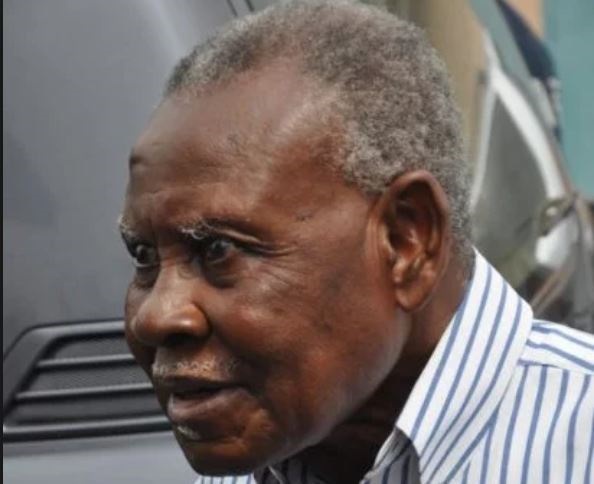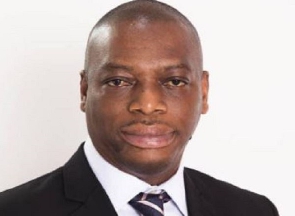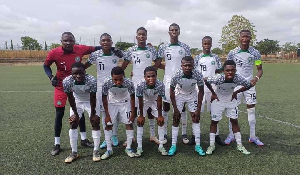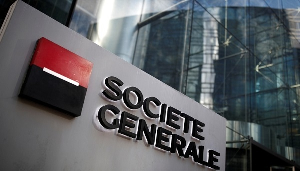Opinions of Sunday, 5 August 2007
Columnist: Akosah-Sarpong, Kofi
J.H. Mensah and Owning the African Renaissance

Mr. J. H. Mensah, 78, is Ghanaian President John Kufour’s economic development czar. He is simultaneously a nationalist, an Africanist, and a globalist. Added to these are his attributes as top policy-maker, bureaucrat, politician, economist, and consultant across the Ghanaian, African and global development scene. Over the years, Mr. Mensah’s innate awakening has come about by battling imperialism, take-on brutal military juntas, exiled for his believes in the democratic process, and locked horns with multi-lateral institutions like the World Bank over policies he thinks are counter-productive to Africa.
That’s why Mr. Mensah says that, “Africa must own fully her renaissance.” This underpins Mr. Mensah’s years of observations, despair and relief, failures and successes, and vast experiences on the Ghanaian and African situation. It is from such background that Mr. Mensah calls ”for Africa and her leaders to own the African Renaissance before they can hope to realize any dividends from it” (July 27, Ghanadot/GNA). He is not only talking from many an exaggerated visions and unrealistic propaganda of yesteryears, but from practical experiences and wisdom.
What is African Renaissance? It is African cultural rebirth or African cultural awakening. And why the cultural rebirth or awakening? As Mr. Mensah noted, from the Europeans to the Asians to the Latinos, their renaissance was born out of the fact that there were too much inhibitions within their norms and values that was stifling their progress and have to be awakened and refined, and at the same time use fully the good parts for progress. The attempts are to refine certain cultural inhibitions are universal as societies attempt to develop: the Europe of the “Dark Ages” had all these strange values and erroneous thinking. But European elites, through the Enlightenment thinkers and writers of the 17th and 18th centuries such as Galileo Galilei, Michel de Montaigne, René Descartes, Voltaire, Jean-Jacques Rousseau, John Locke and David Hume, summoned the intellectual will to overturned such inhibiting values by campaigning that human reason could be used to fight ignorance, deadly superstitions, tyranny, and to build a better world.
More critically, the European, Asian and Latino renaissances emanated from the schisms within their respective values and traditions and not imposed. It was not also a mass thing. Few of their elites, who thought they were enlightened enough, waged sustained campaigns from almost all spheres, sometimes at the risk of their lives, to refine the cultural inhibitions that were blocking their societies’ progress. Such need to awaken the African culture for progress has dawned because either the extremely long-running colonial rule, which profoundly suppressed African values for developmental metamorphosis or post-independence African elites’ weak grasp of Africa’s values in its progress, certain parts of Africa’s values deemed negative have not seen conscious attempts to refine them from within African values for its greater progress.
Nowhere do we see this more than the exclusion of African values and traditions in not only policy-makings, bureaucratizing, and consultancies but also intellectualizing, thinking and philosophizing about Africa’s progress. The European, Asian and Latino renaissances that Mr. Mensah is talking about first emanated heavily from within their innate values and traditions before appropriating from other cultural values. This is where their confidences and faith grew from. The lack of these innate mechanisms has affected Africa’s confidence and faith in its progress. No doubt, Mr. Mensah “blamed the state of African economies on lack of faith and confidence of African leaders in themselves, and in their peoples to initiate and manage the necessary change needed to lift African states from the doldrums of poverty into globally competitive economies.”
Post-independent African leaders such as Ghana’s Kwame Nkrumah and his associates not only failed to appropriate African values and traditions in deeper policy-makings, bureaucratizing, and consultancies, and in this consideration, also intellectualize, think and philosophize about Africa’s progress, but blamed almost everything on the “imperialists,” that’s the ex-colonialists. This blinded Nkrumah and his associates not to examine critically their very values and traditions for the higher progress of Africa. If today, a large of number Africans blames certain challenges of their lives on witchcraft, it is because of that. This weakened the very African values and traditions that were to be used as platform to launch Africa’s progress – as all renaissances have done. No doubt, with confidence and faith in their very values weakened many an African thought he or she has no value and that all values for progress come from the Western world – hence the heavy sway of Western values driving Africa’s education system.
In awakening African values for progress, the central issue is not only appropriating African values and traditions in policy-makings, bureaucratizing, and consultancies, and in this sense, also intellectualize, think and philosophize about Africa’s progress, but how the enlightened African thinkers and writers could be able to cut-and-paste pretty much of the global development values, as some globalization experts argue, to not only refine Africa’s inhibiting values but also add to Africa’s already good values for progress. In this context, the enlightened African thinkers and writers, who are expected to drive the African Renaissance process, are expected to be simultaneously magicians and alchemists in the global development system. In designing and owning the African Renaissance process, African
thinkers, writers, policy-makers, bureaucrats, and consultants are not only to juggle simultaneously African values and traditions with the dominant neo-liberal ones but also mix them where appropriate.
So African elites, as Mr. Mensah argues, have “to tap” into “the existing support from the international community, especially funds in the private sector, to enable the continent to reach middle-income levels within set times.” The reason is that for both historical and material realities, Africa finds itself in a funny position, in the progress scheme of things, and needs remarkably brilliant policy-makings, bureaucratizing, and consultancies, drawn from its values and traditions, to deal with an international community that’s unfair to it. Mr. Mensah is aware of this dilemma and advises that “as things were now, too many of the decisions that could make or break the African Renaissance were unfortunately within the power of the development partners.” And its here that African policy-makers, bureaucrats, and consultants could intellectualize, think and philosophize about Africa’s progress by cutting-and-pasting from the global development values in relation to Africa’s values and traditions for the sustainable operations of the emerging African Renaissance process.













